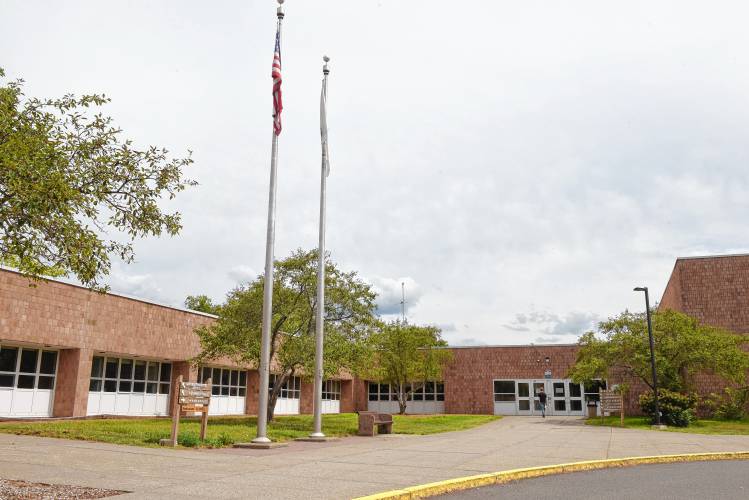State board agrees on vocational school admissions reforms

Franklin County Technical School in Montague. STAFF FILE PHOTO/PAUL FRANZ
|
Published: 05-20-2025 5:11 PM
Modified: 05-21-2025 5:34 PM |
Career technical schools in Massachusetts will use a lottery system to admit students when there are more applicants than available seats, an approach that supporters say will ensure fairness and critics warn will water down education standards.
The Board of Elementary and Secondary Education voted 8-2 Tuesday to advance new regulations from Gov. Maura Healey’s administration that will require the state’s 29 career technical education districts to use the lottery system starting in the 2026-2027 school year.
Vocational programs have become increasingly popular in Massachusetts. According to a Lawyers for Civil Rights federal civil rights complaint that kicked off the state’s pursuit of the reform, during the 2020-2021 school year 18,500 rising ninth graders applied for 10,616 available seats in the state’s CTE schools.
Career technical education proponents say the programs open opportunities for high-wage, in-demand jobs. Some of the programs offered at CTE schools are automotive repair, HVAC, cosmetology, nursing, plumbing, IT support, medical assisting, dental assisting and hospitality management.
Reform supporters have argued the current admissions process disproportionately leaves limited slots for students of color, English language learners, students with disabilities or those from low-income families, and that a random lottery would be more equal.
However, CTE school officials argue that criteria such as disciplinary records, absences and candidate interviews help them determine if a student is ready to be in a different environment than typical classrooms.
The regulations approved Tuesday do not mandate an automatic blind lottery for every school. Schools will be allowed to opt into using certain “weights” in their admissions lottery, if they choose.
Schools may use “student awareness” in weighting a student application in the lottery, which includes whether they’ve attended events such as open houses, tours or online video information sessions. They can also use “student interest,” which weighs whether students have submitted essays or done interviews at the school.
Article continues after...
Yesterday's Most Read Articles
The CTE schools may also opt in to considering middle school attendance and discipline records in how they weigh students. After a public comment period attracted more than 2,000 responses to the draft regulations released in March, the version voted on Tuesday made small changes to this section.
Reform advocates argued that attendance and disciplinary records have disproportionately excluded low-income students, students of color, students with disabilities and English learners. DESE changed the regulations to make clear that attendance and discipline weight may not include data from before a student’s seventh grade year.
“Schools maintain local control in determining which combination of criteria to use, including opting to use none of the criteria and running a non-weighted lottery,” Education Secretary Patrick Tutwiler explained.
Board members heard more than an hour of public comment at their meeting, mostly related to the CTE regulations, and debated for about an hour among themselves. Board members Michael Moriarty and Farzana Mohamed voted against the measure, and Tutwiler abstained, though he recommended members vote in favor of it.
Board Chair Katherine Craven also reminded members that though they voted on the regulations Tuesday, their fate could be tied up in the outcome of state budget talks, as the House pursues a legislative intervention to stop the admissions overhaul.
Worcester Regional Chamber of Commerce President Tim Murray, a former lieutenant governor, called the vote for a lottery-based admissions system “a disappointing outcome that will unnecessarily water down admissions standards, limit voc-tech access for students and undermine the pipeline of skilled workers across the state.”
Murray urged lawmakers to pause implementation of the policy and establish a task force to study admissions practices and develop “effective solutions.”
“Our students’ future should not be determined by bouncing bingo balls in an unproven lottery system,” he said. “Unfortunately, Massachusetts continues to retreat from having high expectations and standards for our students.”
Traci Griffith, racial justice program director for the ACLU of Massachusetts, said vocational schools in 2021 admitted 73.2% of white applicants, compared to 60.4% of applicants of color. She called the regulations a “crucial step toward ensuring equity and dismantling longstanding exclusionary practices.”
“This shift is essential to fulfilling the democratic promise of our public education system, not just in name, but in practice,” Griffith said. “The proposed amendments represent a meaningful effort to move beyond discriminatory practices and ensure all children have a fair and equal opportunity to benefit from the well-documented advantages of hands-on career training.”






 South County Notebook: Aug 17, 2025
South County Notebook: Aug 17, 2025 Mohawk Trail students to see new staff, new codes of conduct upon Aug. 27 return to school
Mohawk Trail students to see new staff, new codes of conduct upon Aug. 27 return to school Grand opening of Buckland-Shelburne Elementary School playground set for Aug. 26
Grand opening of Buckland-Shelburne Elementary School playground set for Aug. 26 Bear-y unwelcome: Why MassWildlife says it’s time to ‘break up’ with bird feeders
Bear-y unwelcome: Why MassWildlife says it’s time to ‘break up’ with bird feeders
